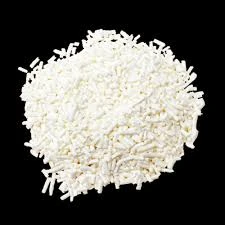
e471 food additive
Understanding E471 A Common Food Additive
E471, commonly known as mono- and diglycerides, is an emulsifier widely used in the food industry. This food additive plays a significant role in enhancing the texture and shelf life of various products, making it a staple ingredient in many processed foods. With its ability to blend oil and water, E471 is essential in creating stability in products where these two elements do not naturally mix.
What is E471?
E471 is derived from glycerol and fatty acids. It can be produced from both plant and animal sources, although most commercial E471 is vegetable-based. The FDA and other global food safety authorities approve its use, deeming it safe for consumption when used within regulated limits. E471 can be found in a plethora of food items, including baked goods, ice creams, margarine, and even in some types of confectionery.
Role in Food Production
The primary function of E471 is as an emulsifier. In simple terms, emulsifiers help combine ingredients that normally do not mix, such as oil and water. For example, in ice cream production, E471 ensures that the cream and air are evenly dispersed, giving the final product a creamy texture without ice crystals. In baked goods, it helps maintain moisture, prolonging freshness and preventing staleness. Moreover, it can act as a stabilizer, preventing the separation of oil and water in salad dressings.
e471 food additive

Health Considerations
While E471 is considered safe by food regulatory bodies, some consumers are concerned about food additives in general and their potential health effects. The debate often centers around the source of the additive—whether it is derived from animal fats or plant oils. For individuals following a vegan or vegetarian diet, it is crucial to check food labels, as some E471 might originate from animal sources. Most reputable brands specify the source of their emulsifiers which can help consumers make informed choices.
Environmental Impact
Another consideration related to E471 is its environmental impact. The production of vegetable-based emulsifiers often raises questions regarding agricultural practices and sustainability. The demand for palm oil, a common source for E471, has been linked to deforestation and habitat destruction in some regions. Therefore, consumers who are environmentally conscious might seek products that use sustainably sourced ingredients or certifications indicating responsible production practices.
Conclusion
E471 is a versatile food additive that plays a crucial role in modern food production. Its ability to stabilize mixtures, improve texture, and extend shelf life makes it invaluable, particularly in processed foods. While largely considered safe, it is important for consumers to stay informed about its source and the broader implications of its use. As the food industry evolves, ongoing scrutiny and transparency will continue to shape how additives like E471 are utilized and perceived in the marketplace. By understanding what E471 is and how it functions in food production, consumers can make better dietary choices that align with their health preferences and ethical values.
-
nitrile-rubber-honoring-strict-production-standardsNewsAug.22,2025
-
aspartame-ingredients-honoring-food-safety-valuesNewsAug.22,2025
-
fertilizer-for-balanced-plant-nutritionNewsAug.22,2025
-
cyanide-gold-processing-with-high-purity-additivesNewsAug.22,2025
-
formic-acid-in-textile-dyeing-applicationsNewsAug.22,2025
-
aluminum-hydroxide-gel-in-skincare-productsNewsAug.22,2025
-
Regulatory Compliance for Global Mining Chemicals UseNewsAug.12,2025
Hebei Tenger Chemical Technology Co., Ltd. focuses on the chemical industry and is committed to the export service of chemical raw materials.
-

view more DiethanolisopropanolamineIn the ever-growing field of chemical solutions, diethanolisopropanolamine (DEIPA) stands out as a versatile and important compound. Due to its unique chemical structure and properties, DEIPA is of interest to various industries including construction, personal care, and agriculture. -

view more TriisopropanolamineTriisopropanolamine (TIPA) alkanol amine substance, is a kind of alcohol amine compound with amino and alcohol hydroxyl, and because of its molecules contains both amino and hydroxyl. -

view more Tetramethyl Thiuram DisulfideTetramethyl thiuram disulfide, also known as TMTD, is a white to light-yellow powder with a distinct sulfur-like odor. It is soluble in organic solvents such as benzene, acetone, and ethyl acetate, making it highly versatile for use in different formulations. TMTD is known for its excellent vulcanization acceleration properties, which makes it a key ingredient in the production of rubber products. Additionally, it acts as an effective fungicide and bactericide, making it valuable in agricultural applications. Its high purity and stability ensure consistent performance, making it a preferred choice for manufacturers across various industries.





